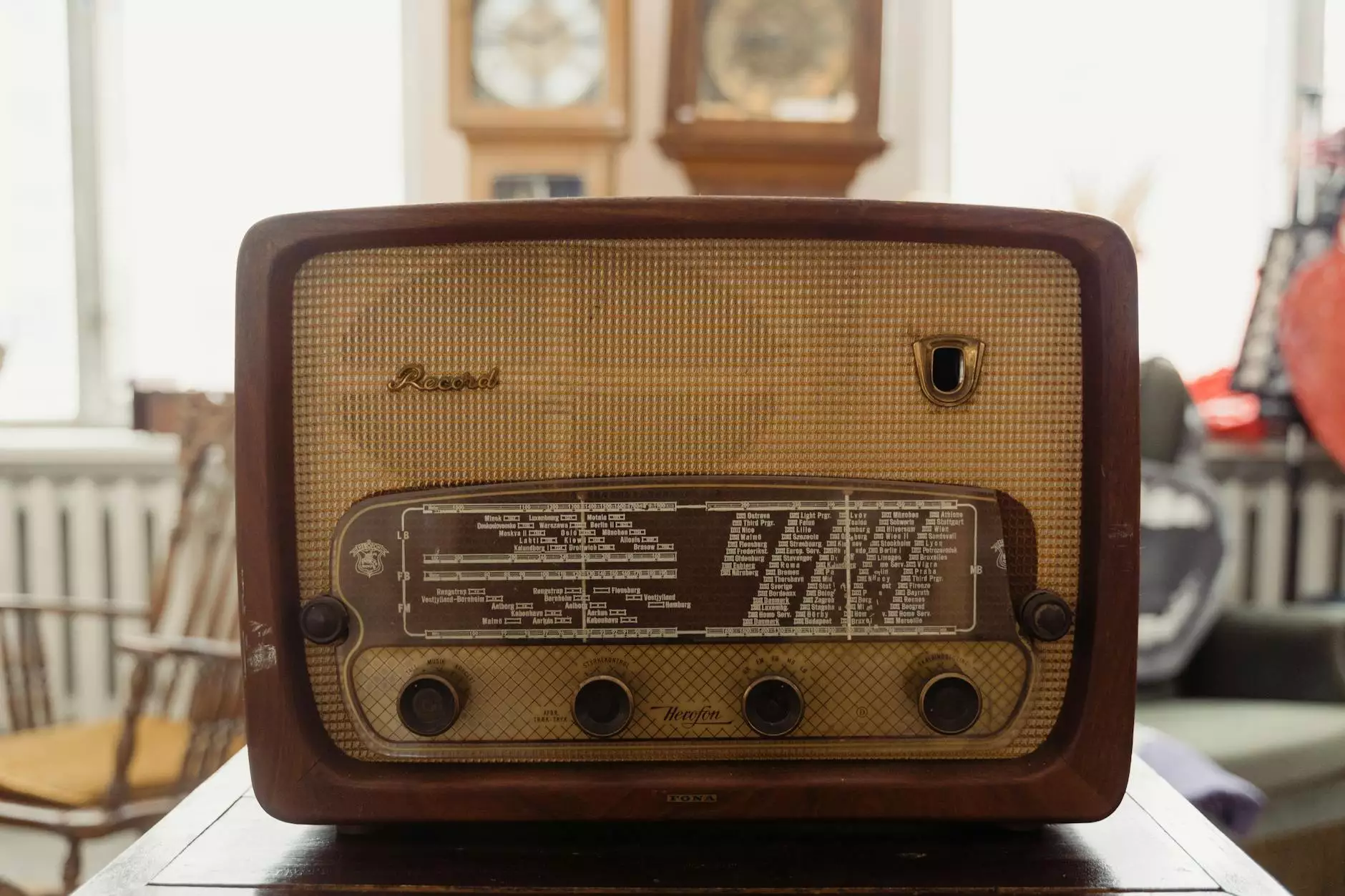Understanding Radiofrequency Ablation: A Game-Changer in Vascular Medicine

Radiofrequency ablation is a minimally invasive medical procedure that utilizes radiofrequency energy to obliterate diseased tissues, specifically in the realm of vascular health. It is primarily used to treat varicose veins and other vascular conditions. Advances in medical technology have made radiofrequency ablation one of the most effective treatments available, offering patients a safe and efficient alternative to traditional surgical methods.
What is Radiofrequency Ablation?
At its core, radiofrequency ablation is a procedure that involves the application of radiofrequency energy to generate heat, which in turn destroys specific cells in the body. In the context of vascular medicine, this procedure targets problematic veins, particularly those that are dilated or varicosed. It is acclaimed for its precision and minimal recovery time, making it a favored choice among vascular specialists.
The Science Behind Radiofrequency Ablation
The mechanism of action for radiofrequency ablation is relatively straightforward yet ingenious. The procedure involves the insertion of a thin catheter into the affected vein. Once in place, the catheter emits radiofrequency waves that produce heat, subsequently causing the walls of the vein to collapse. This occlusion prevents blood from flowing through the affected area, which ultimately alleviates symptoms and improves the overall health of the vascular system.
Benefits of Radiofrequency Ablation
The advantages of choosing radiofrequency ablation over traditional surgical methods are substantial. Below are some of the key benefits that have made this procedure increasingly popular:
- Minimally Invasive: Unlike traditional surgery, radiofrequency ablation requires only small incisions, resulting in less pain and a faster recovery time.
- Reduced Recovery Time: Most patients can return to their normal activities within a few days after the procedure.
- High Success Rate: Studies indicate that radiofrequency ablation has a high efficacy in treating varicose veins, making it a reliable option for those affected.
- Local Anesthesia: The procedure can typically be performed under local anesthesia, increasing patient comfort and safety.
- Minimal Scarring: The small incisions made during the procedure often result in little to no noticeable scarring.
Who is a Candidate for Radiofrequency Ablation?
Candidates for radiofrequency ablation typically include individuals suffering from varicose veins, chronic venous insufficiency, or other vascular conditions. However, not every patient is an ideal candidate. It is essential to undergo a thorough evaluation by a healthcare provider to determine the appropriateness of this treatment. Factors that may influence candidacy include:
- Severity of symptoms
- Overall health and medical history
- Specific vascular conditions present
The Radiofrequency Ablation Procedure: What to Expect
Understanding the procedure can alleviate any apprehension a patient may have. Here’s a detailed overview of what one can expect during a radiofrequency ablation procedure:
Preparation Before the Procedure
Prior to the day of the procedure, patients will typically undergo a thorough assessment, which may include:
- A physical examination
- Medical history review
- Doppler ultrasound to evaluate blood flow
Patients are generally advised to refrain from taking blood-thinning medications for a few days before the procedure to minimize the risk of complications.
The Procedure Itself
On the day of the procedure:
- The patient will be positioned comfortably, usually lying on a treatment table.
- The area around the affected vein will be sterilized and numbed with local anesthesia.
- A thin catheter will be inserted through a small incision into the vein.
- Once the catheter is in position, radiofrequency energy will be delivered to the vein.
- The physician will monitor the progress, ensuring the area is treated effectively.
- After the energy is applied, the catheter is removed, and pressure is applied to the site to minimize bleeding.
Post-Procedure Care
Following radiofrequency ablation, patients are usually monitored for a short period before being discharged. Instructions for post-procedure care may include:
- Avoiding strenuous activities for a few days
- Wearing compression stockings as directed
- Monitoring the site for any signs of infection or complications
It is common to experience some bruising or swelling near the treated area, but these symptoms typically subside within a few days.
Potential Risks and Complications
While radiofrequency ablation is generally safe, like any medical procedure, it carries some risks. Common side effects may include:
- Bruising at the site of the incision
- Swelling or discomfort in the treated area
- Rarely, nerve damage or blood clots
It is crucial for patients to discuss potential risks with their healthcare provider during the pre-procedure consultation.
Follow-Up and Long-Term Results
Follow-up appointments are essential to monitor healing and ensure the success of the radiofrequency ablation procedure. Many patients notice significant symptom relief soon after the procedure, often expressing a marked improvement in their quality of life. Long-term results indicate a high satisfaction rate, with many people experiencing lasting relief from symptoms of vascular disease.
Finding the Right Specialist for Radiofrequency Ablation
Choosing the right healthcare provider is critical for achieving successful outcomes with radiofrequency ablation. Here are some key points to consider when selecting a specialist:
- Experience: Look for a vascular specialist with extensive experience in performing radiofrequency ablation.
- Certifications: Ensure the doctor is board-certified and maintains relevant training in vascular medicine.
- Patient Reviews: Research patient testimonials to gauge satisfaction and overall experiences.
Conclusion: The Future of Vascular Health with Radiofrequency Ablation
In conclusion, radiofrequency ablation represents a significant advancement in the field of vascular medicine. Its effectiveness, minimal invasiveness, and rapid recovery time make it a preferred choice for patients suffering from various vascular conditions. By leveraging modern technology, vascular specialists can provide patients with tailored treatment options that enhance their health and well-being. As research and innovations continue, the future looks bright for those seeking relief from vascular issues through radiofrequency ablation.
At Truffles Vein Specialists, we are committed to providing state-of-the-art vascular care. If you are interested in learning more about radiofrequency ablation or would like to discuss your symptoms with experienced professionals, we encourage you to schedule a consultation today.









